- Introduction
- Why Supplier Selection Matters in Hose Procurement
- Evaluating Hose Quality: Key Indicators
- Durability Factors to Consider
- Performance Expectations from a Hose Supplier
- Supplier Support and After-Sales Services
- Red Flags When Vetting Hose Suppliers
- Questions to Ask Before Partnering with a Hose Supplier
- Final Thoughts: Choosing the Right Supplier for Long-Term Value
Introduction
Industrial hoses play a vital role in heavy-duty operations across numerous sectors. From moving abrasive slurries in mining operations to transporting oil, chemicals, and water in refineries and construction sites, these hoses are essential for maintaining efficient fluid and material transfer. Industries such as manufacturing, agriculture, wastewater treatment, and energy production all rely on durable hoses to ensure operational safety, uptime, and productivity. Among the most commonly used are the industrial water hose and other application-specific solutions.
However, even the most advanced hose can fail if it comes from an unreliable source. Choosing the right industrial hose suppliers is just as important as selecting the hose itself. Poor-quality hoses can lead to system inefficiencies, equipment damage, environmental risks, and costly downtime. Working with trusted industrial hose suppliers helps mitigate these risks by offering dependable products, technical guidance, and consistent performance.
This guide outlines what to look for in a quality industrial hose supply partner, including factors like material selection, manufacturing standards, hose performance, and after-sales support. Whether you’re managing a single site or a multi-facility operation, making informed supplier choices is essential for achieving long-term reliability, safety, and cost-efficiency in your industrial hose systems.
Why Supplier Selection Matters in Hose Procurement
The cost of hose failure can be significant, especially in demanding industrial environments. A ruptured hose, whether it’s a chemical transfer line or an industrial water hose, can cause unexpected downtime, environmental contamination, equipment damage, or even serious injury. In many cases, the cost of addressing such failures far exceeds the expense of selecting high-quality hoses from trusted industrial hose suppliers.
Choosing the right industrial hose supply partner is more than just a purchasing decision—it’s a strategic investment in operational reliability. Reputable industrial hose suppliers offer more than off-the-shelf products. They provide technical consultation, custom-built solutions, and stringent quality control to ensure optimal performance in your specific application. This includes selecting the right materials, pressure ratings, reinforcement structures, and connectors based on the demands of your environment.
While budget suppliers may appear attractive with lower upfront pricing, their products often lack the durability and consistency needed for industrial applications. Over time, this leads to frequent replacements, increased maintenance, and elevated total ownership costs. Partnering with a dependable supplier ensures consistent quality, better system compatibility, and longer service life, factors that contribute to both safety and significant long-term cost savings.
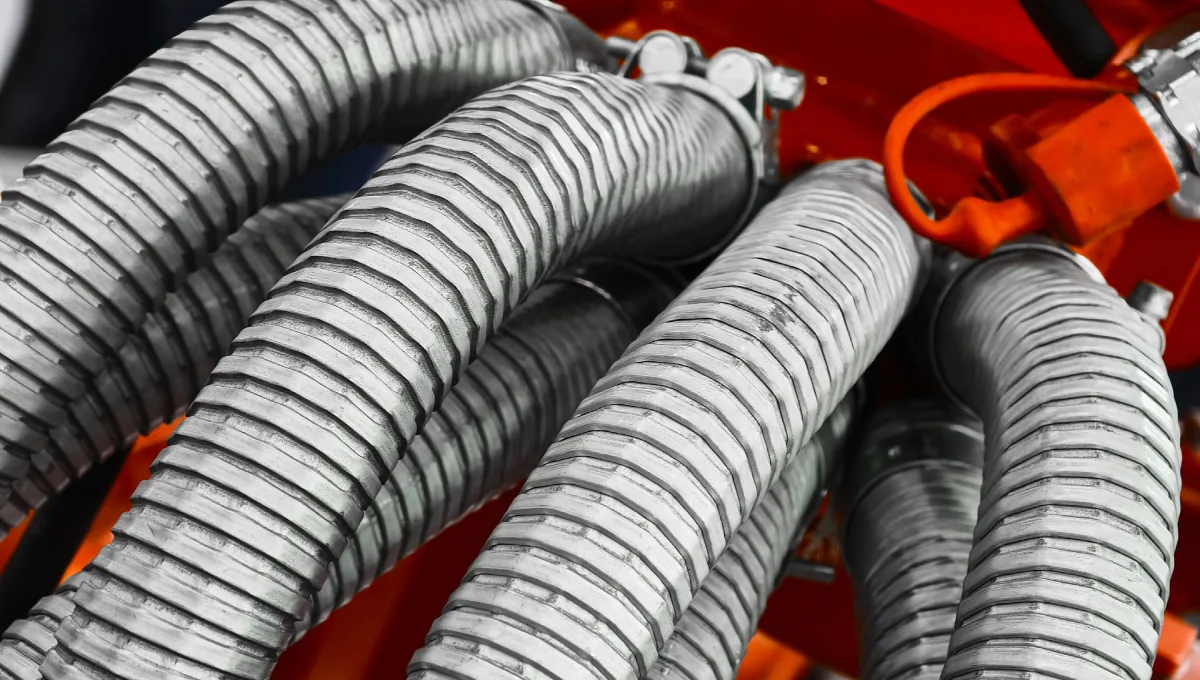
Evaluating Hose Quality: Key Indicators
A. Material Composition
Not all hoses are created equal. In industrial settings, selecting the right material is critical to ensuring hose performance and longevity. Industrial hose suppliers typically offer hoses made from rubber, PVC, polyurethane, or composite materials, each suited for specific applications:
- Rubber hoses offer excellent flexibility and strength, making them ideal for transporting water, air, oil, and steam.
- PVC hoses are corrosion-resistant and lightweight, suitable for lower-pressure applications, but can become rigid in cold environments.
- Polyurethane hoses are known for their exceptional abrasion resistance and are often used for handling slurries, granular materials, and high-wear media.
Material selection must also take into account chemical compatibility, UV exposure, and operating temperature range. Trusted industrial hose suppliers help customers evaluate these variables and recommend the right product for the task, whether it’s a high-pressure transfer line or an industrial water hose for construction and site dewatering.
B. Manufacturing Standards and Certifications
Reputable industrial hose supply partners follow internationally recognized standards such as ISO 9001, SAE J517/J343, and API guidelines. These certifications confirm the supplier’s commitment to quality, process control, and industry safety norms. Batch traceability is another critical factor, offering transparency into material sourcing, testing, and compliance.
C. Quality Control Measures
Top suppliers don’t just claim quality, they prove it. Reliable hoses are tested for burst pressure, tensile strength, aging resistance, and overall structural integrity. This ensures consistency from batch to batch, minimizing operational risks and maximizing product life across all applications.
Durability Factors to Consider
A. Pressure Ratings and Temperature Range
One of the most important performance characteristics of any industrial hose is its ability to withstand pressure. Every hose has a working pressure, the maximum pressure it can handle during regular use, and a burst pressure, which is the pressure point at which it will fail. A general rule is that the burst pressure should be at least four times the working pressure to ensure safety and reliability.
The temperature range is equally critical. Whether you’re working in freezing construction zones or high-heat industrial processing environments, selecting a hose with the right thermal tolerance is key. Leading industrial hose suppliers offer products specifically designed for extreme conditions, allowing you to choose hoses that won’t crack, degrade, or become brittle under stress.
B. Abrasion and Chemical Resistance
In sectors like mining, oil and gas, and wastewater, hoses often carry corrosive or abrasive media. If the inner lining can’t resist these materials, hose degradation occurs rapidly. A dependable industrial hose supply partner will provide chemical compatibility charts and suggest reinforced or coated linings, such as ceramic or urethane for slurry, or fluoropolymer for chemicals.
C. Flexibility vs Structural Integrity
Different tasks demand different hose characteristics. Whether it’s a flexible industrial water hose or a heavy-duty suction hose, experienced industrial hose suppliers can match your needs with braided, spiral-wound, or wire-reinforced options, ensuring performance without sacrificing strength or safety.
Performance Expectations from a Hose Supplier
A. Customization Options
Industrial operations are rarely standardized, and your hose solution shouldn’t be either. The best industrial hose suppliers offer full customization services, allowing you to specify exact requirements such as:
- Inside/outside diameter (ID/OD) and hose length
- Working pressure and temperature ranges
- Hose fittings, couplings, and end connectors
- Choice between lay-flat, rigid, or coiled hose types
Additionally, suppliers with true application expertise can design hoses specific to your needs, such as industrial water hoses for construction sites, suction hoses for dredging operations, or anti-static hoses for fuel and chemical handling. Custom fabrication ensures optimal system performance, minimizes compatibility issues, and improves overall safety.
B. Compatibility with Industrial Equipment
Hoses are integral to larger fluid-handling systems and must connect seamlessly with pumps, valves, tanks, and manifolds. Poor compatibility can lead to leaks, pressure drops, or mechanical failure. Leading industrial hose supply companies ensure OEM-compliant solutions, offering hoses that match specific thread types, flange dimensions, and clamp configurations, guaranteeing plug-and-play installation with your existing systems.
C. Longevity and Field-Tested Performance
Reputable industrial hose suppliers back their products with real-world performance data. Look for those who provide average service life estimates, warranties, and documented success in similar use cases. Performance guarantees and case studies offer insight into how the hose performs under demanding industrial conditions, helping you make confident, data-driven procurement decisions.
Supplier Support and After-Sales Services
A. Technical Consultation
Top-tier industrial hose suppliers don’t just deliver products—they offer expert guidance before the sale even happens. Their technical consultation services help you select the right hose based on media type, flow rate, temperature, and application conditions. This support often includes:
- Fluid compatibility analysis
- System layout recommendations
- Pressure drop calculations and hose routing
Such engineering insights are invaluable in preventing costly procurement errors, enhancing system efficiency, and ensuring long-term reliability, especially when specifying products like an industrial water hose for construction, agriculture, or washdown operations.
B. Delivery Timelines and Inventory Availability
Fast access to replacement hoses is crucial when equipment failure halts operations. Reliable industrial hose supply partners maintain large inventories of standard hoses, fittings, and connectors, and can deliver custom builds with minimal delay. Look for suppliers who offer:
- Rapid shipping on common stock
- Short lead times on custom solutions
- Emergency fulfillment for critical failures
Always inquire about lead times, particularly if your operation relies on bulk purchases or specialty hoses.
C. After-Sales Support and Warranty
The relationship with industrial hose suppliers shouldn’t end after delivery. Reputable vendors provide post-purchase services such as installation assistance, maintenance tips, and clear return/warranty policies. This level of after-sales commitment demonstrates that the supplier values long-term partnerships, not just one-time transactions.
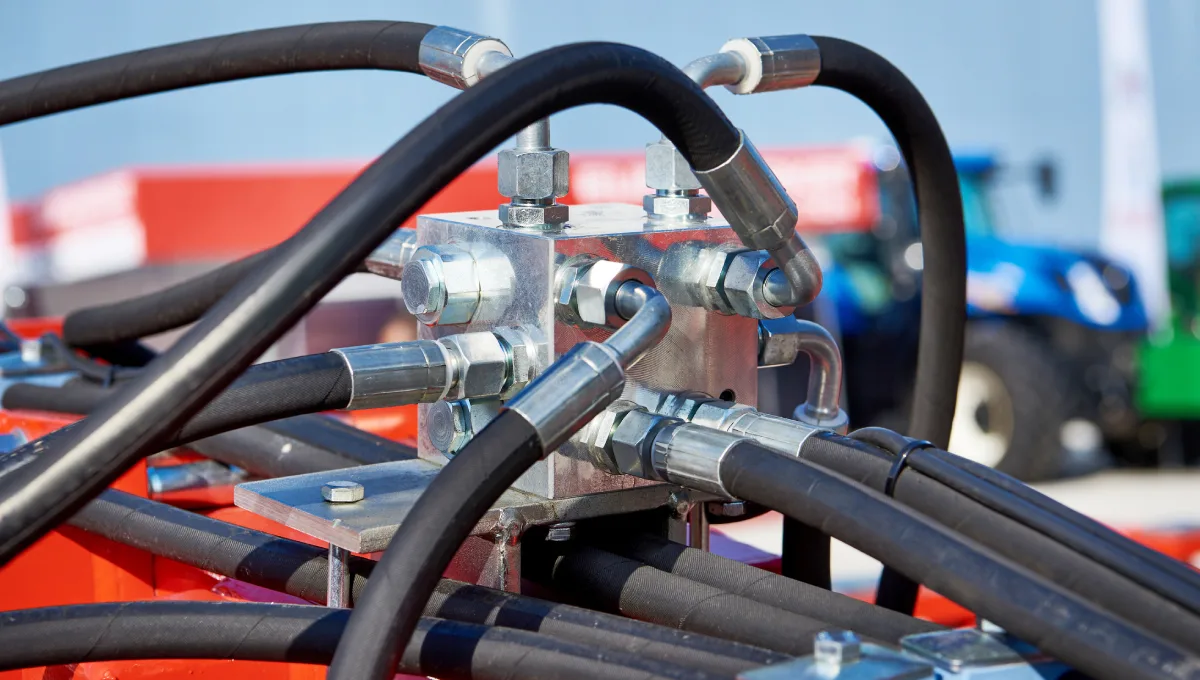
Red Flags When Vetting Hose Suppliers
Choosing the right partner from the many available industrial hose suppliers requires more than just comparing prices. It’s important to evaluate the supplier’s credibility, technical knowledge, and ability to meet your industry’s specific needs. Watch for the following red flags that may indicate a poor fit:
- Vague or inconsistent product specifications: A reputable supplier should provide detailed specs, including pressure ratings, temperature ranges, and material compatibility.
- Lack of documented compliance or certifications: ISO, SAE, or API certifications are indicators of reliable manufacturing practices. Their absence should raise concern.
- Unresponsive or untrained sales teams: If the supplier cannot provide technical answers or guidance, you may be left unsupported during critical decision-making.
- Inability to provide test data or performance references: Trusted industrial hose suppliers should be able to demonstrate past performance, case studies, or test results.
- Generic inventory with no application-specific builds: Avoid suppliers who offer only basic hoses and can’t customize for specific uses, such as an industrial water hose for dewatering or washdown applications.
A dependable industrial hose supply partner offers transparency, product expertise, and proven success in relevant applications. Any lack of these qualities is a warning sign that their products may not hold up under real-world demands, putting your operations at risk.
Questions to Ask Before Partnering with a Hose Supplier
Before selecting from the many available industrial hose suppliers, it’s important to conduct thorough due diligence. Asking the right questions can help you identify whether a supplier has the experience, reliability, and technical capability to meet your operational demands, whether you need a specialized chemical hose or a standard industrial water hose for site dewatering or fluid transfer.
Here are some essential questions to include in your evaluation process:
- Do you have experience in my industry or application?
Suppliers familiar with your sector can provide better guidance and anticipate specific challenges. - Can you provide documentation for pressure ratings, chemical resistance, and certifications?
Legitimate industrial hose suppliers will have no problem furnishing technical data sheets, ISO certifications, and compliance documents. - What is your lead time for custom orders?
Understanding delivery timelines is critical for planning and avoiding costly downtime. - How do you handle returns, warranty claims, or defective products?
Clear policies demonstrate accountability and customer commitment. - What testing or quality control measures do you conduct?
Look for suppliers that test for burst pressure, tensile strength, and chemical compatibility.
A trustworthy industrial hose supply partner will answer these questions transparently and provide supporting documents when needed. Their responsiveness and attention to detail are good indicators of how they’ll perform when you need technical support, expedited orders, or specialized products like a custom-built industrial water hose.
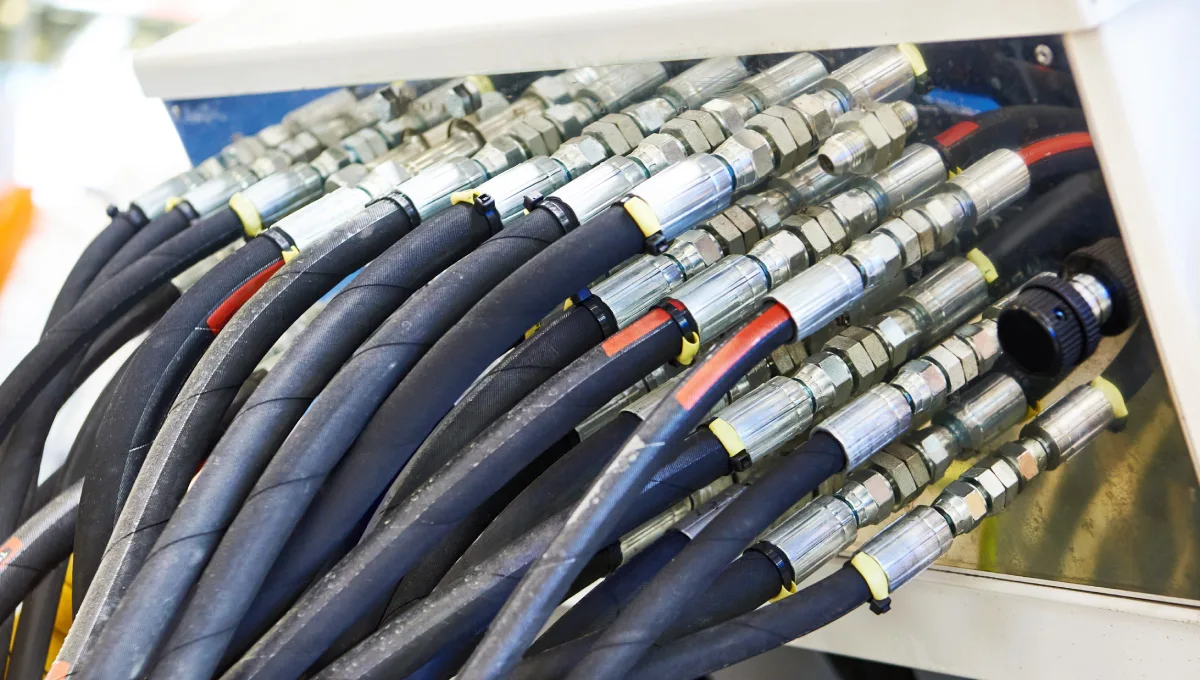
Final Thoughts: Choosing the Right Supplier for Long-Term Value
When it comes to fluid transfer systems, choosing the right hose is only half the equation; the other half lies in selecting the right supplier. Quality, durability, and performance aren’t just product attributes; they’re outcomes of sourcing from experienced and reliable industrial hose suppliers who understand the specific demands of your industry.
A high-quality hose from a heavy-duty slurry line to a flexible industrial water hose must meet rigorous operating conditions and safety standards. But even the best-designed hose will underperform or fail prematurely if it’s supplied without proper technical support, testing, or compatibility analysis. This is why the supplier’s role is so critical. A dependable partner can guide you in selecting the right hose type, customizing it for your needs, and ensuring consistent performance over time.
In contrast, low-cost providers may appear attractive initially but often lack the expertise, inventory diversity, or support systems needed for high-stakes industrial applications. Partnering with the wrong industrial hose supply source can result in poor system integration, increased downtime, and unexpected maintenance costs that negate any initial savings.
As you evaluate industrial hose suppliers, go beyond the price tag. Ask the tough questions. Request documentation. Evaluate lead times and post-sales support. Look for a proven track record in your field.
Long-term value comes not just from products that last, but from partnerships that deliver performance, support, and peace of mind. Choose your supplier with the same level of scrutiny you’d apply to any critical operational asset, and your systems will benefit from lasting reliability and efficiency.


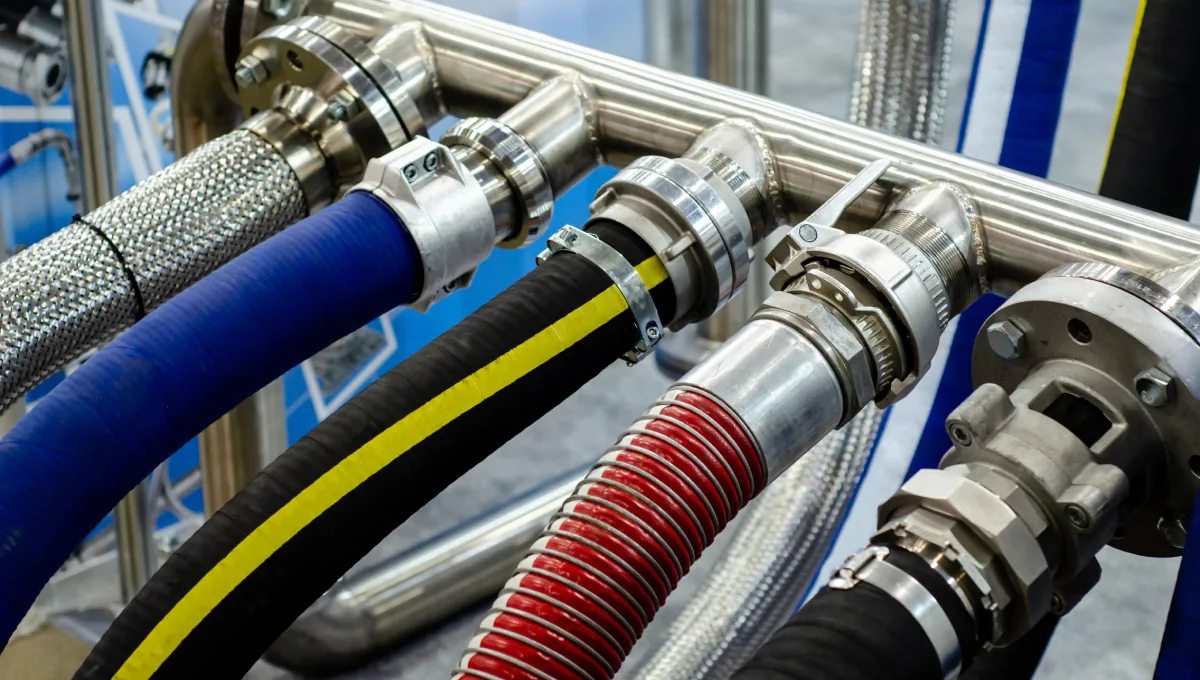
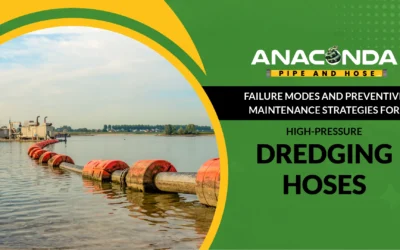
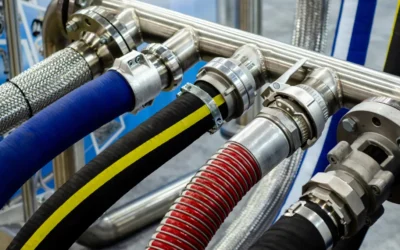
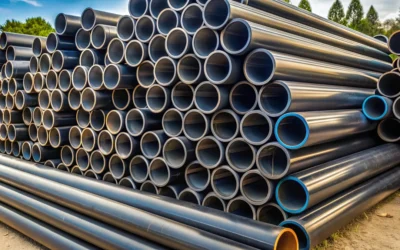
0 Comments